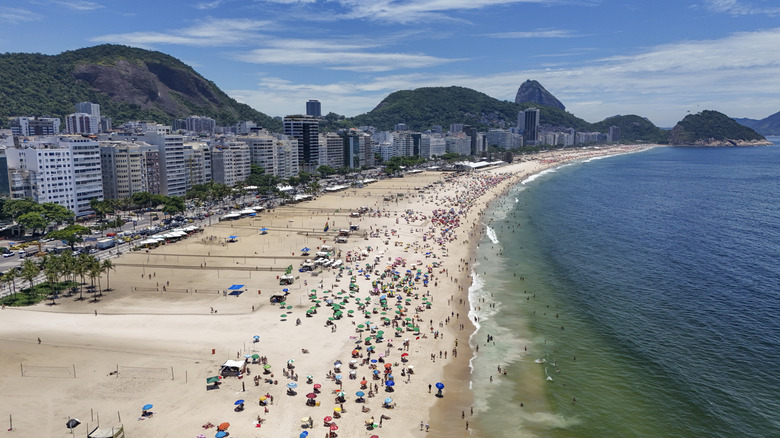Here's Why You Might Hear Clapping On A Brazilian Beach (And It's Not What You'd Expect)
Though some dreamy Brazilian beach destinations may be so stunning you think they deserve applause, there's actually another serious yet wholesome reason you might hear clapping while sunbathing in Brazil and other parts of South America. The beach clapping phenomenon — and the purpose behind it – has spread on social media, including Instagram and Reddit. Essentially, if a child gets separated from their parents, adults around the missing child will clap to help the parents locate their kid. The child sometimes will also be placed on an adult's shoulders, so the parents may more easily spot them.
@nicknobrasil_ on Instagram explained to his followers, "It's such a small thing; I've never seen this on any beach anywhere on the planet. It's just another one of those little Brazilian things that is super, super cool." One Reddit user even speculated that because clapping is a common thing to do, it doesn't overdramatize the situation and scare the child while being able to effectively signal to the parents that their child is safe and waiting for them. So, if you're hanging out on "the world's most famous beach" or another of Brazil's iconic coastal spots, don't be surprised if you hear applause.
The beach clapping method has spread
Many people in the comments on the Instagram reel and on Reddit have started explaining that this practice is not only common on Brazilian beaches but in other parts of South America as well. On Reddit, users from Argentina, Uruguay, and Chile have commented that they clap when a child is separated from their parents at their beaches, too.
Carnival, a huge festival celebrated in Brazil and other destinations, is another place where this practice can be effective. At huge parties, street events, and gatherings, kids can get easily separated. One commenter on @nicknobrasil_'s reel wrote that a child once got lost on a small block at Carnival, and everyone got down and clapped their hands. Though this doesn't seem to be a thing that has spread north to the U.S. or Canada, it certainly is something that would be effective to adopt.

